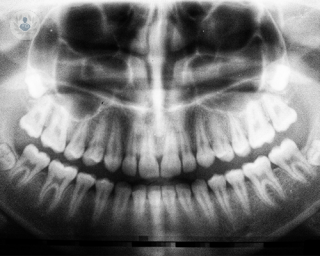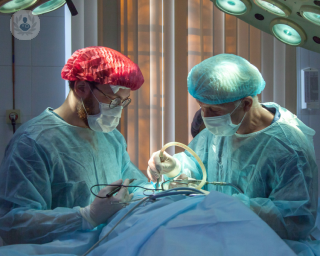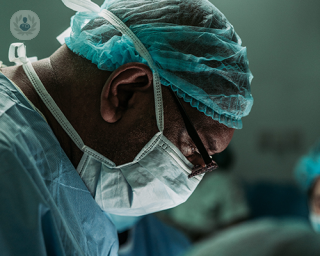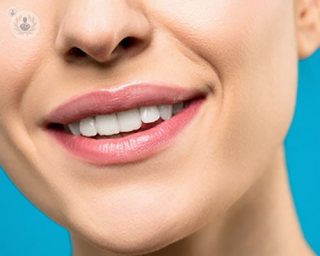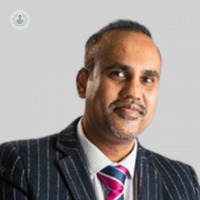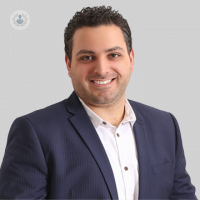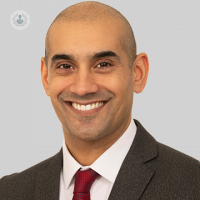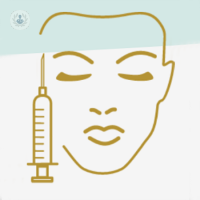Mouth cancer
Professor Kavin Andi - Oral & maxillofacial surgery
Created on: 11-13-2012
Updated on: 10-13-2023
Edited by: Kate Forristal
What is mouth cancer?
Mouth cancer or oral cancer is the most common type of head and neck cancer. It can affect:
- The lips
- The gums
- The tongue
- The inside of the cheeks
- The floor and roof of the mouth
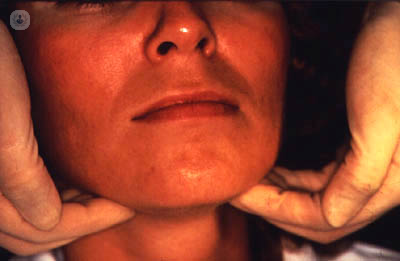
Prognosis of oral cancer
Cancer is a serious disease with a high mortality rate worldwide. In the case of oral cancer, the prognosis of the disease depends on numerous factors, such as the location and size of the tumour, the person’s state of health and their diseases and comorbidities. However, the most influential factors in the prognosis are the stage of development of the tumour when detected, the depth of the tumour, if it has metastasised to other tissues or if the lymph nodes have been affected.
If oral cancer is diagnosed in its early stages, it has a 90% cure rate. However, squamous cell carcinomas are tumours that often spread rapidly to other parts of the body, such as the throat and neck, decreasing survival rates.
What are the symptoms of mouth cancer?
The main symptom of oral cancer is leukoplakia, a whitish, ulcer-like plaque that appears on the affected tissue and then darkens and spreads. There is no initial pain, but as it spreads it becomes painful.
Other symptoms of mouth cancer include:
- Sore mouth ulcers that don’t heal within a few weeks
- Unexplained lumps in the mouth that don’t heal
- Unexplained numbness or strange sensations on the lips and tongue
- Unexplained loose teeth
- White or red patches on the lining of the mouth or tongue
What causes mouth cancer?
Smoking or excessive alcohol consumption are associated with most cases of mouth cancer. Other factors that cause oral cancer include chronic irritation, infection due to human papillomavirus (HPV), taking medications that weaken the immune system, or poor oral and dental hygiene. Men over the age of 40 are the most affected by this pathology.
Medical tests for oral cancer
The main tests performed to detect oral cancer are as follows:
- Physical exam: the specialist looks at your medical history and examines the oral cavity, so routine check-ups are helpful in detecting any symptoms or nodules.
- Endoscopy: this is performed by a specialist and it allows them to look inside the mouth and throat. It is carried out in the case of a suspected pathology in this area. If any abnormality is detected, a biopsy will then be performed.
- Biopsy: this involves removing a small amount of tissue in order to check for malignant or cancerous cells. For the diagnosis of oral cancer, an oral brush biopsy can be performed, which consists of scraping the affected area with a small brush to obtain some cells which are then sent for analysis. This procedure is simpler and is usually performed by odontology specialists.
- X-ray: a small amount of radiation may also be used to see inside the oral cavity and the internal structures of the body.
- Computerised Axial Tomography (CT scan): this test provides a three-dimensional image using x-rays taken simultaneously from several angles. A CT scan allows the specialist to see detailed, cross-sectional views of the tumour and to assess its size. A contrast substance may be injected to better detect whether the cancer has spread to other tissues or organs.
- Magnetic Resonance Imaging (MRI): also known as nuclear magnetic resonance imaging, this uses magnetic fields instead of radiation to look at soft structures in the body. It is used in particular to examine the tonsils and tongue. A contrast dye may also be used.
- Ultrasound: this involves the use of ultrasound waves instead of radiation to look at the internal structures of the body. It is less invasive than an x-ray and can detect cancer in the lymph nodes.
Can it be prevented?
Prevention of oral cancer involves avoiding the main risk factors. Therefore, avoiding alcohol abuse and not smoking is key to preventing tumours, in addition to maintaining healthy habits and a balanced diet. Also essential is proper daily dental and oral hygiene.
Mouth cancer treatment
Early detection is essential for the treatment of mouth cancer.
Treatment consists of surgically removing the tumour if it is small. If the tumour is large, radiotherapy or chemotherapy will be used. The type of surgery varies according to where the tumour is located and it may entail the complete removal of an organ. The most important thing in the treatment is to remove the entire tumour along with a margin of healthy tissue to prevent it from spreading.
In addition to surgery, the person may also need reconstruction and other procedures to improve their quality of life, such as jaw reconstruction, a gastrostomy tube that allows them to feed themselves, or a tracheotomy to improve breathing.
Immunotherapy may also be recommended.
Which specialist treats mouthcancer?
Treatment for mouth cancer may require multidisciplinary care, involving oncologists, radiologists, general surgeons, oral and maxillofacial surgeons, and dentists. Psychologists and psychiatrists may also be needed to help the affected person and their family to cope with treatment.
Oral cancer affects areas and organs that are fundamental for basic functions such as communication and nutrition, so in addition to physiotherapists to help them recover their physical strength and mobility, a speech therapist may also be required to treat the sequelae and impairments in speech, chewing and swallowing.

